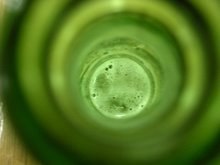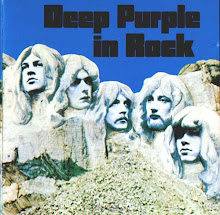I was reminded by a news item today of the tongue-in-cheek 'Big Mac Index' started by The Economist a dozen or so years ago as a means of comparing the PPP (Purchasing Power Parity - the relative cost of a consumer item or basket of items, exchange-rate adjusted, against the benchmark of the USA).
When I first came to China, I was very favourably impressed by the low cost of the local beer (at least in neighbourhood stores and restaurants; in bars, other than the very diviest bargain dumps, prices are close to parity with the UK or the US, and getting higher every year). And I found it consoling, since I wasn't earning very much money back then, to calculate my salary in terms of how many beers I could buy with it.
This simple exercise certainly gave a boost to the spirits: I was earning over 2,000 beers a month! (They were usually only 2 kuai for a big bottle in those days, mind you.)
I fear that this is the moment at which I became 'trapped' in China. I realised it was pretty much inconceivable that I could earn enough to support such a good lifestyle - well, such an alcoholic lifestyle! - in the UK, or almost anywhere else in the world.
Of course, one has to keep in mind that beer is unusually, unnaturally cheap here. In fact, it is - bafflingly - more or less the same price by volume as the cheapest bottled water, and significantly cheaper than any kind of soft drink. Hence the tendency to drink it all the time.... purely for rehydration....
Food in grotty street-corner restaurants is also astoundingly cheap (rather cheaper than cooking for yourself at home, I find), but the more upmarket places, and especially the Westerner-targeted places are closer to the level of prices we're used to back home. Food in supermarkets is mostly pretty cheap, but has got a lot more expensive in recent years; and any imported luxuries - or domestically-made Westerner favourites like processed ham or potato crisps - are likely to be as much or more than they would be back home. You need to be very careful in in your spending, with such an uneven spectrum of pricing.
So, doing regular BEI (Beer Equivalence Index) comparisons in your head should work in two ways:
when you're feeling down, you can focus on the overall value of your income in beers, to give yourself a lift;
but most of the time, you should be using it as a brake on your spending, by reminding yourself how many beers you could buy instead of something else you're about to purchase.
Trust me - this is a very useful technique. I'm surprised it hasn't been more widely exploited by academic economists yet.
[I have also elaborated two expansions on this analytical method: the Beer Spread Index, which gives an indication of socio-economic inequalities in a country by measuring the gap between the highest and lowest prices commonly charged for a beer, and the Country-to-Country Comparison, which, like the more famous 'Big Mac Index', enables you to gauge the relative cost of living in different places.]






No comments:
Post a Comment